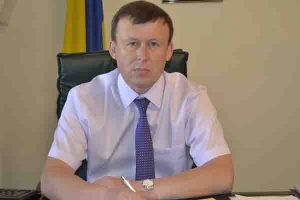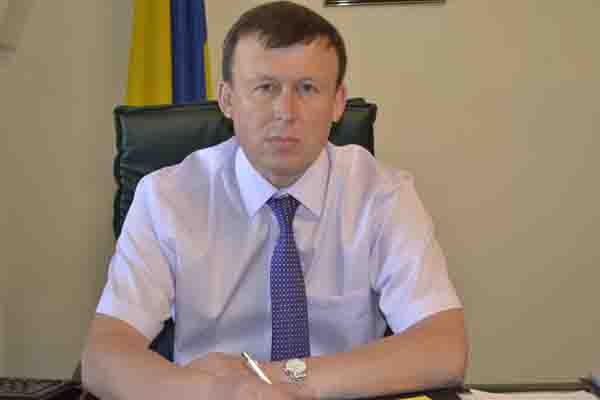
By Sami Zaptia.
Tripoli, 5 September:
On the occasion of the 21st anniversary of Ukraine’s independence (24 August), and the first anniversary of Ukraine’s recognition of the outgoing National Transitional Council (first of September) the Ukrainian ambassador in Tripoli Mykola Nahorny spoke exclusively to Libya Herald.
How would you describe the current relationship between Libya and Ukraine?
‘I think we should first review the old Ukrainian-Libyan relations realistically. The perception of the Libyan on the street is that Ukraine had good relations with Libya. I would like to review this realistically based on statistics. The reality is that trade between Libya and Ukraine in 2010 was only US$ 200 million, whereas that between Libya and say Germany, for example, was US$ 3-4 billion’.
‘On the other hand, Libyan investment in Ukraine in 2010 was only US$ 18 million. All the projects that the former regime used to announce in Ukraine were fantasy projects and unrealistic. For example the 100,000 hector agricultural investment projects, the Libyans did not go beyond the first step of implementation’.
‘In fact, after gaining independence from the Soviet Union, Ukraine did not succeed in executing a single project in Libya including the oil and gas sector of Libya! This is the reality of the Ukrainian-Libyan relations during the Qaddafi regime’.
So what is the cause of this current perception on the Libyan street that Ukraine had good relations with Gaddafi and his regime?
‘I think the first cause of this misperception is the Qaddafi regime media and press. The media of Qaddafi built up Qaddafi’s visit to Ukraine as ‘a historical’ visit. Every Qaddafi visit everywhere was built up by Qaddafi’s media as an ‘historic visit’!
‘Secondly, the second cause of the misperception that Ukraine had close relations with the Qaddafi regime was the number of Ukrainians working in Libya’.
‘There are now about 1,000 Ukrainian doctors and nurses working in the Libyan health sector. Prior to the Libyan 17th February Revolution, this number was between 2,500-3,000 Ukrainians. This cooperation between the Ukrainian and Libyan people, the people on the street saw as between Qaddafi and the Ukraine’.
‘But in reality it was between the Ukrainian people and the Libyan people. Because Ukrainian doctors participated much in the Libyan health sector during the Revolution and we have testaments to their efforts, and their efforts are appreciated even by the Libyan people on the street’.
What was the position of Ukraine towards the Arab Spring Revolutions in Libya, Egypt and Tunisia?
‘Ukraine is not a very rich state and a state that is only 21 years old. Ukraine experienced many revolutions including the 2004 Orange Revolution which we could say was the first peaceful experiment of the peaceful transformation of the people’s will without the loss of blood’.
‘We are a state which fought for and supports democracies. We support the Revolutions that occurred and are still occurring in the Arab Spring Revolutions. Ukraine recognized the NTC on the first of September 2011’.
‘The only reason for our delay was the presence of the large number of Ukrainians within Libya during the February 17th Revolution’.
‘You understand that any political decision that we could have taken before this date would have had a negative effect on our nationals from the former regime. Any decisions that would have given recognition to the NTC at an earlier time would have endangered the large number of nationals still remaining within Libya’.
‘But from the beginning of the Revolution we attempted to make contact with the representatives of the NTC. For example, in June 2011 Abdulrahman Shalgam visited Ukraine and met with Ukrainian officials. Ukraine also participated in the Libya contact groups and friends of Libya meetings. We therefore feel that we were supporting the Libyan Revolution through these meetings from earlier on’.
‘Ukraine also helped by sending peaceful aid to Libya. For example, Ukraine sent in October a team of surgeons to Misrata and it treated 11 injured in Ukraine at the Ukrainian government’s expense. Ukraine also sent medicines and medical equipment to Libya’.
What is the latest situation with regards to the Ukrainian nationals accused of being mercenaries during the Libyan Revolution ?
‘The latest situation is that there is an appeal on behalf of the 19 accused Ukrainian citizens. The important thing is to clarify some facts such as the fact that the Ukrainians were not captured in the war theatre or in a barracks or with blood on their hands’.
‘They were captured at the Tourist Village. We have credible information to show that they were not fighting mercenaries or snipers. They were oil sector workers who were forced at gun point to work in the air force to maintain radars’.
‘In all honesty, I do not think that the Libyan air force had any role during the Libyan Revolution. It did not have a role in the bringing down of either Libyan or NATO aircraft’.
‘There is an appeal on their behalf and we are awaiting the result of this appeal. We feel that the sentences of 10 years were too much and are similar to a life sentence in view of the fact that the average age of those sentenced was about 60 years old’.
Did Qaddafi receive help during the Revolution on a personal level from any Ukrainian citizens?
‘No I do not have any information to show that any Ukrainians participated in the war effort with the Qaddafi regime’.
What is the Ukrainian policy towards the current situation in Syria?
‘We are disturbed by the bloody events in Syria and the first victims of these bloody events are the Syrian citizens. There are more than 5,000 Ukrainians in Syria and we think that the situation there may have a negative effect on them. We already know some Ukrainians were caught up in the situation’.
Do you support the current Syrian regime or the Syrian Revolution?
‘Ukraine has a neutral position on the Syrian events. The Syrian people should decide their future’.
What steps will you take to change the perception in some Libyan’s minds that Ukraine was a close friend of the Qaddafi regime?
‘Ukraine did not do anything against the Libyan people in order that it should try and change its image. However, Ukraine is currently trying to participate in the rebuilding of the new democratic Libya. There are, for example now two teams of mine removing experts, one in the east in Tobruk and the second in the south in Sabha’.
‘Secondly, we continue to offer treatment to Libyans in Ukrainian hospitals. There are hundreds of Libyans travelling for treatment through an organized way through the Libyan Ministry of Health, the Red Crescent and the Ministry of Foreign Affairs to Ukraine mostly for ophthalmology treatment’.
‘We have also suggested to the Libyan Health Ministry the establishment of a Ukrainian Libyan hospital here in Libya’
‘There are still come nations that still do not facilitate easy visas for Libyans to receive medical treatment in their country’.
‘Regarding educational grants, we feel that the bringing up of the next generation is an important issue for the Libyan government and therefore Ukraine has granted 15 education grants for Libyan students at educational institutions in Ukraine’.
‘This year we hosted the Society Africa Society for the Care of Orphans from the city of Beida to attend the annual conference in Ukraine in July/August consisting of 10 Libyan children’.
‘Regarding the important area youth and sport we exchanged our knowledge with Libya which wishes to host the African Nations Cup in 2017 giving them our experience from the Euro 2012 football tournament’.
In your view, what are the biggest threats to the success of the Libyan 17th February Revolution?
‘In my personal view Libya faces numerous issues. The first is the large number of armed groups that are outside the control of the authorities.’
Secondly, the issue of the setting the future of the Libyan state – will it be a unitary or Federal state for example. This needs national consensus and agreement between all the different sections of Libyan society’.
‘The issue of building a civilized democracy, not a democracy of total or uncontrolled freedom, but a democracy that adheres to the law and the institutions and the transfer from the revolution to the state while holding on to the achievements of the revolution’.
‘I personally I see there are many positive step and initiatives during this stage of Libya’s development such as the peaceful transfer of power from the National Transitional Council to the General National Congress. We in Ukraine totally welcome this transfer’.
‘The formation of the new government – a government that represents all the Libyan people, a government that can deal all the challenges that face the Libyan people and the new Libyan authorities currently’.
‘Ukraine wishes the GNC and the new government all the best success in its efforts in drafting the new constitution. A constitution that reflects and desires of the Libyan people and the protection of the achievements of the Revolution and secures the correct foundations for the building of the Libyan state and the securing of the thriving and flourishing future of the people of Libya‘. [/restrict]









